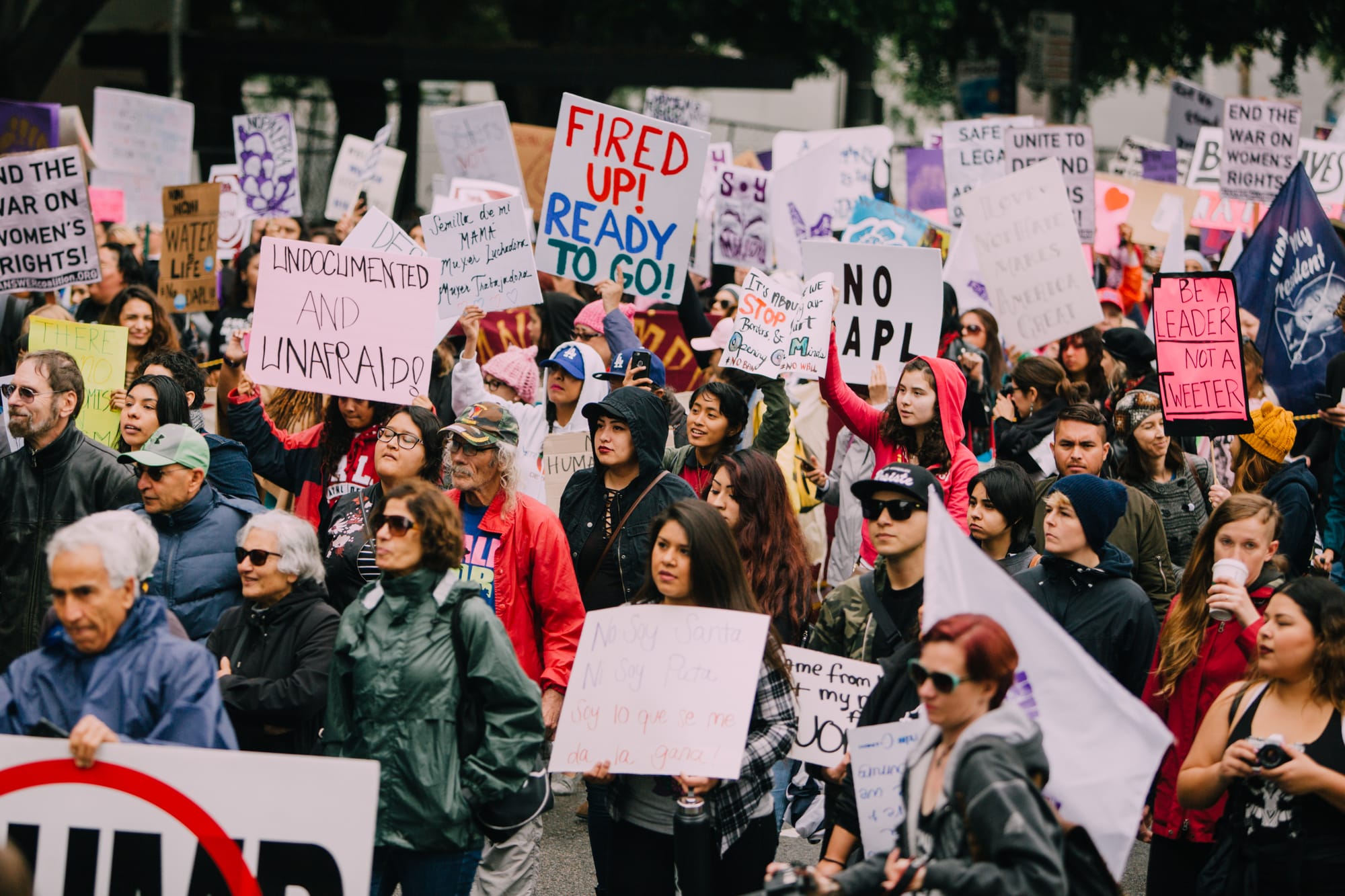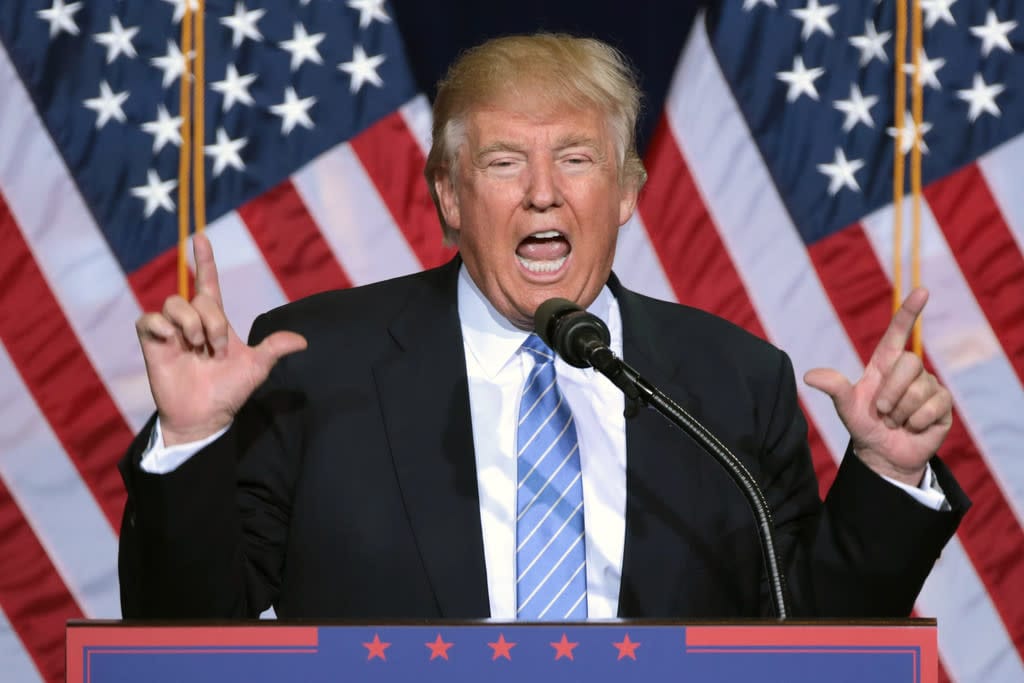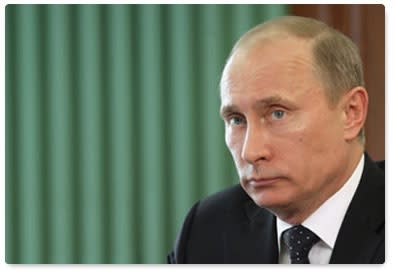
The 2018 International Women’s Day will be noticed. The unreported constant that shapes international politics—the politics of gender— is an overt item on the agenda. It is no longer a terse undercurrent; in 2018 it is a flood of fed-uppedness, an elenchus to the hyper-masculine gun-show that can so often define international politics and foreign policy.
After all, gender politics is constitutive of global politics. We see it in the gender displays and gender identities of political leaders, in the language and behaviour deemed suitable to them, in their political debates and ideals. But the politics of gender isn’t only about gender. Simultaneously, it is the politics of power, authority and legitimacy. It stakes the flags to swim between and determines who gets to swim and who gets to crawl. Sometimes it’s subtle, but sometimes even the most resistant and ignorant can’t help but acknowledge it.
On this International Women’s Day we find ourselves between the opportunities for pursuing gender equality that have been prised open by the #MeToo movement and feminist leaders such as New Zealand’s Jacinda Ardern, and the relentles

s hyper-masculinity that persists in global politics. It’s certainly a case of steps forward, but how much ground have we actually covered?
Right now, hyper-masculinist politics defines the leaders of more than a few nations. In the United States, Donald Trump treats us daily to examples of his apparent virility and aggressiveness. His recommendation last week that teachers should carry guns and his daydream in which he rushes unarmed into a mass shooting to protect children are—for him—not expressions of manhood, but its defining features.
The coercive threat of physical violence as the definitive element of masculinity: this show is playing globally at a nation near you. Last week the President of Cambodia, Hun Sen, warned potential protestors ahead of an Australia-ASEAN Summit meeting in Sydney that “if you burn my effigy—I will go after you and beat you up in your house. I warn you in advance.”
Perhaps nowhere is hyper-masculinity more on display in current international politics than in the most phallic of all foreign policy agenda items: nuclear weapons. This week Russian President Vladamir Putin—long celebrated and ridiculed for his Russo-camp masculine posturing—has unveiled a range of strategic nuclear weapons which he claims cannot be intercepted. Similarly, the nuclear standoff between North Korea’s ‘rocket man’ and the ‘dotard’ reeks of hyper-masculinity.
These politics enact ego, violence and misogyny; they substitute diplomacy with hubris, with brinksmanship, reactionary politics and the will to aggression. As performative theatre, we’re reminded of a von Trier film, leading nowhere good. And yet, as we witness the resurgence of the hypermasculine, there is fightback.
And it’s not only loud, the response from critics is that of the everywoman: worldwide and local, universal and personal. Women particularly have fought back, exercising the courage to speak openly about the impact of hyper-masculine cultu

res and concentrations of male power in society and—as we have seen recently and repeatedly—in the workplace. #MeToo has created space for women to be frank and open about the breadth and depth of damage that masculine abuse of power has effected in our lives and in our societies.
This week also, the now 44-year old former White House intern Monica Lewinsky reflected on the experiences of her 22-year old self in light of what might be a change in culture inspired by #MeToo. In the late 1990s Lewinsky was ridiculed and ostracised, regarded almost exclusively as a pawn of political opponents used to impeach a President. Few attended to the possibility of respecting Lewinsky’s right to anonymity or wellbeing. Nor were hard questions asked about the abuse of institutional structural inequality: whether the consenting intern—at the weakest end of the most unequal power relationship in the country—experienced sexual harassment or assault.
These are questions that Australia has faced in the past few weeks. Former Deputy Prime Minister Barnaby Joyce lost his job in the wake of a sexual relationship with a younger female staffer. While there has been no question that Joyce’s relationship is consenting, questions are this time being asked about power relationships in the workplace when—in most cases—they involve senior male and junior female staff. In efforts to address this, the Prime Minister imposed what is referred to as the “#bonkban”, forbidding sexual relationships between Ministers and members of staff.
In light of the above, all of which have taken place in the past few weeks, it’s easy to be depressed by the slow, schizophrenic progress of gender equality in politics. We have a Prime Minister who feels the need to impose a ban on sex between consenting adults because Ministers, apparently, do not have the ethical compass to navigate personal or power relationships with women. In the wake of this, a former Minister for Women has slandered and sought to undermine the professionalism of young female staff members working for the Leader of the Opposition. She felt justified in doing this on the basis of rumours she’d heard.
Don’t be disheartened; there’s still evidence of gender-equal politics. Recall the calm masculinity of Barack Obama who the New York Times recently described as a “hands-on dad and self-identified feminist married to a high-achieving woman who was once his boss.” In a more explicit example of the genre is the self-declared feminist Canadian President Justin Trudeau, who this week released his feminist budget. In other parts of the world we see concerted, explicit efforts to engage in feminist foreign policy.
Trudeau, alongside Sweden, has enacted self-proclaimed feminist foreign policies, an approach that is driven by human rights and cosmopolitanism, seeking to engage gender-awareness in foreign policy issues. In practice, Sweden’s Feminist Foreign Policy claims to “combat destructive masculine norms” worldwide, to promote human rights and a global politics free from violence and support the political participation and the health of women, globally.
Is this an option for Australia? A starting point is our first female foreign and defence ministers, who have both committed—to some degree at least—to advancing gender equality in our foreign policy agencies and in our global relations. You get an inkling of this in the Defence and Foreign Affairs white papers and in Australia’s candidacy to the Human Rights Council. Foreign minister Julie Bishop can be frequently found telling audiences that a commitment to gender equality and empowering women is “not just the right thing to do, it is the smart thing to do.” Bishop’s mastery in managing Vladimir Putin during the MH-17 controversy is testament to her skill in negotiating with ‘strongmen’, a capacity as useful domestically as it is diplomatically.
The commitment by both ministers’ departments to implementing the United Nations’ Women, Peace and Security agenda augurs well for feminist foreign policy with the government committing to recognise and address the unique impact of armed conflict on women and support their engagement in post-conflict transitions to peace. This agenda, it should be further noted, significantly increases the likelihood of sustainable peace.
Ministers Bishop and Payne know this research. They know that moves towards gender equality bring stronger and more stable organisations, communities and politics. But like all politics, it is not a straight path. After the last month of politics–both domestically and internationally–it is clear that persistent roadblocks remain. But this International Women’s Day should nonetheless celebrate impressive recent moves towards gender equality and plot our ongoing path.
This article originally appeared on the Australian Institute of International Affairs website.





